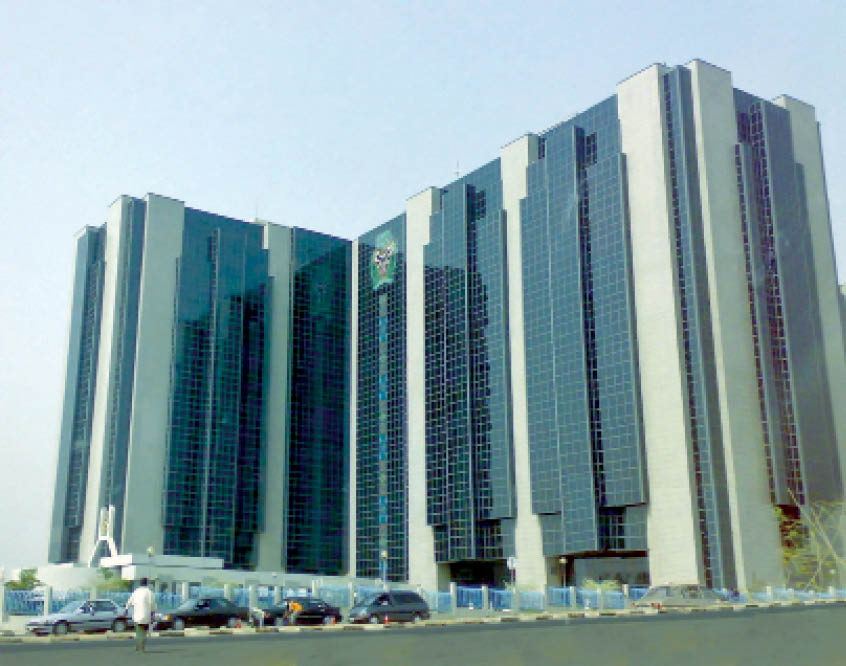Beyond Nigeria’s current fiscal meltdown
Watching the build up to the forthcoming general polls which are due in a matter of weeks from now, it is not difficult to see a foreboding that there are bare-faced information gaps in much of the campaigns, as there is much more than meets the eyes than is before the general public. While the […]

CBN headquarter, Abuja
Watching the build up to the forthcoming general polls which are due in a matter of weeks from now, it is not difficult to see a foreboding that there are bare-faced information gaps in much of the campaigns, as there is much more than meets the eyes than is before the general public. While the twists and turns as well as the facts, fallacies, half-truths and outright lies associated with electioneering campaigns are trending with mouth-watering promises flowing from both sides of the mouths of candidates seeking public offices, not a few Nigerians would have wished that more attention be paid to the fiscal condition of the country, especially in the light of recent revelations which point to a literal or incipient meltdown of the economy.
Beyond the traditional complaints like unprecedented state of insecurity and runaway criminality, weak industrial infrastructure and epileptic energy supply among others, recent revelations from the fiscal terrain have only heightened the state of alarm for not a few citizens. Nigerians across the country are literally living on tenterhooks with most not sure of the next meal or restful sleep. Adding the spectre of distress in the economy and the fiscal terrain constitutes a burden too many for them. That is why the fate of the economy is of prime concern.
As is trite knowledge, unlike the political system where much drama can be generated by mere pronouncements of the potentates, the economy is not easily swayed by mere pronouncements by any potentate. Positive changes can only be attained by painstaking efforts at strategic planning and boosting productivity, as the economy is the network of resources, relationships and other factors that determine the quality of life for the individual citizen, from cradle to grave.
As at the last count the country’s fiscal terrain has been in a state of unease with a few topical issues dominating others to keep it so, And with their end game swaying in limbo, the added grief from such misfortune to the wider society can be appreciated Listed in no chronological order are the ongoing currency swap exercise, contentious matter of allegedly ‘missing’ N89 trillion of stamp duty funds, and the debt burden of the country especially with respect to the outstanding ways and means palaver which the Senate has in its wisdom deferred debate on to this week Wednesday January 17 2023. Understandably, their significance of these issues derives from the debilitating effect which their mismanagement has on the entire economy. Meanwhile, it remains a wonder how many Nigerians would have wished like this author how much increase which the country records over time, in savings for the rainy day. But that is a matter for another day.
For now the challenge borders on how the country can fare into the future in the light of the fiscal meltdown facing it, even as had earlier been observed in this column, that the thrust of electioneering campaign has in the main not focused on the more debilitating debacles as mentioned above. Rather campaign debates (except in the case of a few instances) remain more fixated on the character weaknesses of the candidates, power sharing calculus and rather mundane premises. The implications include the reality that short of constructive engagement between the political class and the wider society over the fiscal meltdown, whichever incoming administration may simply run business as usual, and thereby deny the country the fulfilment of the lofty expectations from the 2023 polls exercise.
For all practical intents and purposes, the Buhari administration can no more be expected to deliver any significant dividend of governance. All expectations need to be channeled to an incoming administration. These include for instance the myriad problems surrounding the currency swap exercise have tended to downgrade it to a point where the entire country is watching how the Central Bank of Nigeria (CBN) hopes to complete the assignment as planned with minimum headaches for Nigerians. Meanwhile the outstanding ‘missing’ N89 trillion stamp duty fund remains one headache which from all indications the present administration of President Muhamadu Buhari may hand over to its successor. Just as well is the contentious debt burden along with the N23.1 trillion ways and means matter whose future can be known only after the Senate debate on it holds on Wednesday this week being January 17 2023.
Yet for Nigerians, all is not yet lost, given the capacity of the people to spring back from any adversity and edge of any precipice where mis-governance or any other misfortune has driven it to. Indeed the country’s contemporary state of affairs calls to mind the aphorism that it is not what happens to a man that matters more than how he takes it. Even the current fiscal meltdown cannot break the country.
Interestingly, it is this spirit of ‘never say die’ by Nigerians under any circumstance that not only sustains the people but also conditions them to tolerate any abuse from any leadership. The political class knows that the country can even take more bashing than is presently imposed on the people.
God, please save Nigeria.
